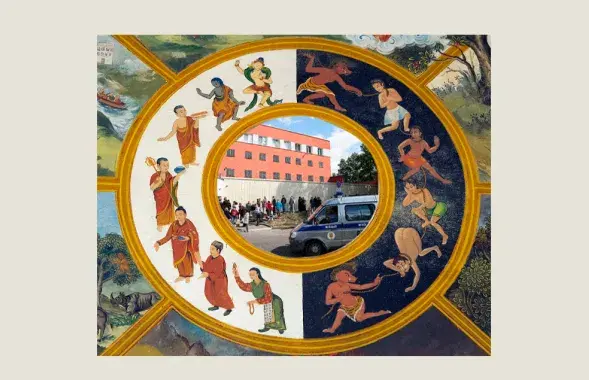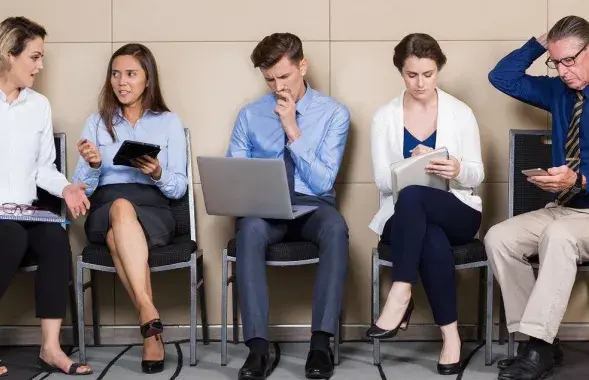Litvina: Many things have changed since musicians visited president's office
ERB: Why was there a need to seek an appointment with the head of ideology department at the presidential administration?
Z.L: When in September Belposta began compiling a catalogue of printed editions, it became clear that our non-state newspapers that cover social and political issues could have not been entered this subscription catalogue once again. Our colleagues from the regions confirmed information and local branches of Belposta and Belsayzdruk did not object to distributing those newspapers. But to all the questions from publishers, they would respond that all the problems should be resolved on top at the presidential administration. Therefore, the board of BAJ (Belarusian Association of Journalists) took a decision it was worth seeking a meeting with the head of ideology at the presidential administration and trying to solve the problem of distribution blockade for the non-state press somehow. We filed a written request, but no respond would come back for over one month. Later, at the Minsk Forum, Uladzimir Makei (the head of the presidential administration), said there would be positive steps at the media market as well. Right on the next day, we sent another appeal, signed by 12 editors-in-chief, requesting to return newspapers into the legal field.
ERB: Apparently, you got an appointment not with the help of letters….
On Monday, there was a roundtable meeting on the regulation of the internet. Usevalad Yancheuski, the head of ideology at the Office of the Preisdent, was attending and speaking there. It would not have been wise if we did not use that opportunity to propose a meeting. We were promised that such a meeting would take place within one week. Indeed, the meeting took place on Wednesday.
ERB: How did Yancheuski accept your request?
There had already been reports about the return of Narodnaya Volya and Nasha Niva newspapers to the distribution network. Of course, the situation with these two newspapers contributed to our attempt to engage in a dialogue.
ERB: Whose decision was to send you and your deputy Andrei Bastunets?
It was our decision. We just wanted very much to have Andrei Bastunets at the meeting. He is a respected lawyer. I would feel more comfortable if there would have been questions associated with the Belarusian legal framework.
ERB: They say it is not easy to enter the building of the presidential administration. What kind of checks did you have?
I am well familiar with access procedures in European institutions. Basically, there are no differences in the procedures if you try to enter the building of the Council of Europe, for example, or the European Parliament. There is a pass office. If you are on the list, the process takes just several minutes. The same was here. There were no checks that could degrade human dignity.
ERB: What did you feel in front of the doors of a high-ranking official?
Those feelings always depend on the person. If you know that the truth is on your side when you do not beg for something but tries to be understood and knows that you operate within the law, I had no humble feelings. I don’t have a feeling of a beggar.
ERB: What was the conversation about?
The first and the most important thing: if two newspapers are freed from captivity, the policy of discrimination remains towards over 15 regional and national newspapers. We also said about other painful problems like access to information. Today, it is impossible to obtain information from officials who hide behind the law on state service and are allowed to deny information to journalists. Moreover, this affects not only journalists from private newspapers but even those from the state-run media. Of course, we also talked about the situation with the accreditation of journalists who work with foreign media. This situation is abnormal, but it can deteriorate even further when the new media law comes into force on February 8. It stipulates that accreditation is a permit for profession, not a mechanism that exists to facilitate the operation of journalists. So we raised the issue of bringing the media laws in Belarus with international standards. What do we have in reality? We have that the law on fighting extremism is applied against journalists. The recent events over ARCHE magazine, registered by the way, require condemnation. We were listened to attentively and there were a number of questions to clarify the events associated with our initiatives. We were proposed to prepare monitoring briefs. It was done and forwarded to the Office of the President.
ERB: Apart from the monitoring briefs, did you receive any promises on the raised issues?
I don’t think that all the issue raised can be resolved momentarily, by end of today or by the weekend. There is a whole system of bureaucrats, enterprises and others involved in those issues. It requires time for decision-making. I don’t think that the state machine can change instantly or obey someone else than the president. There is no way around it. Wonders do not happen in life. There are no illusions that the whole package of our requests will receive a positive backing. Most likely, there will be incomplete decisions. But it is a positive moment that we were listened to.
ERB: Last year, when rock musicians went to the chief of ideology at the administration, there was a lot criticism. Did you think that your visit to the administration could receive a lot of negative comments?
People who think that the situation will remain unchanged are rather mistaken, because the general political situation is changing. Today, there is a basis for the authorities in this country to make such steps under pressure of economic difficulties. It is understandable to me that the situation has begun moving. The reaction towards the visit of musicians was possibly caused by the fact that there had been no such a visit before. A year ago, our country had a different vision of foreign political ties. Many things have changed over this year. Apparently, the situation has become ripe. I think that BAJ’s leadership must do everything possible so that the problems associated with the economic discrimination of our colleagues, with the distribution of the press should be solved. We had three years. We appealed to international journalistic organizations and other partners, seeking support and solidarity over these problems. We approached the Ministry of Information and were receiving ironic and insincere responds for three years. This problem was frozen and no realistic solutions could be observed. Now the situation has changed. The readiness to return Narodnaya Volya and Nasha Niva to the distribution system was a very important push forward. This gives hope that other newspapers will also be returned to kiosks and subscription catalogues.



















